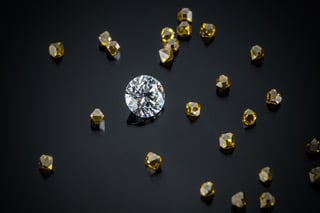
For his latest work, the artist-provocateur Christoph Büchel has been quietly transforming all of his unsold works into lab-grown diamonds—using DNA taken from his own feces.
To grow these single carat diamonds in a Swiss laboratory, the gems must thrive on something called “diamond crystal seeds.” The lab extracts carbon from the organic matter of the artworks, which is then pressed under high pressure and heat for weeks to imitate the growth of diamonds, a process that usually takes place over billions of years.
The artist is planning to make 150 diamonds this year, and will continue on for years in the future. The gesamtkunstwerk, which is titled The Diamond Maker – The Estate, will only be completed upon Büchel’s death.
This ongoing body of work is produced by the Jena Art Collection in Germany and supported by the Swiss funding body Pro Helvetia. The artist is currently in talks to exhibit the project in collaboration with Fondazione Prada in Milan.
The iconoclastic Swiss artist is known for headline-grabbing projects that have sometimes proved controversial. In 2019, Büchel moored a shipwrecked boat in Venice during the biennale—the same ship that had just carried hundreds of migrants to their deaths when it sank. For his participation in the 2015 Venice Biennale, he converted a historic church into a mosque.
While Büchel’s work is notably ambitious both in terms of its duration and scale, there are some predecessors. In 2015, American conceptual artist Jill Magid used a similar process (minus the fecal matter) to transform the ashes of architect Luis Barragán into a lab diamond as part of a conceptual performance that critiqued the in-fighting over the architect’s famous archive.
In the 1980s, Italian artist Piero Manzoni canned his feces and sold it for the price of gold. Büchel cites the Manzoni work as a reference.